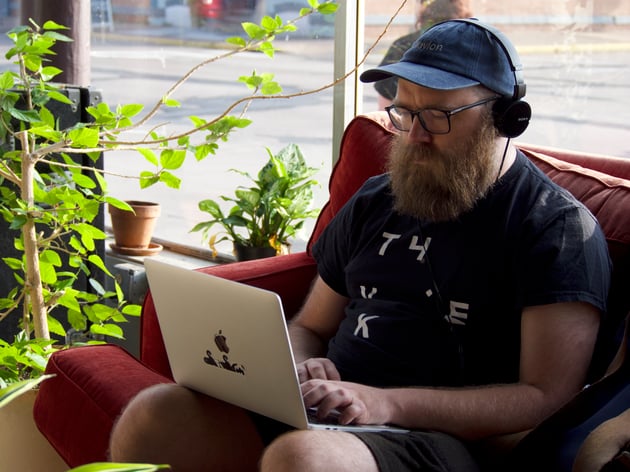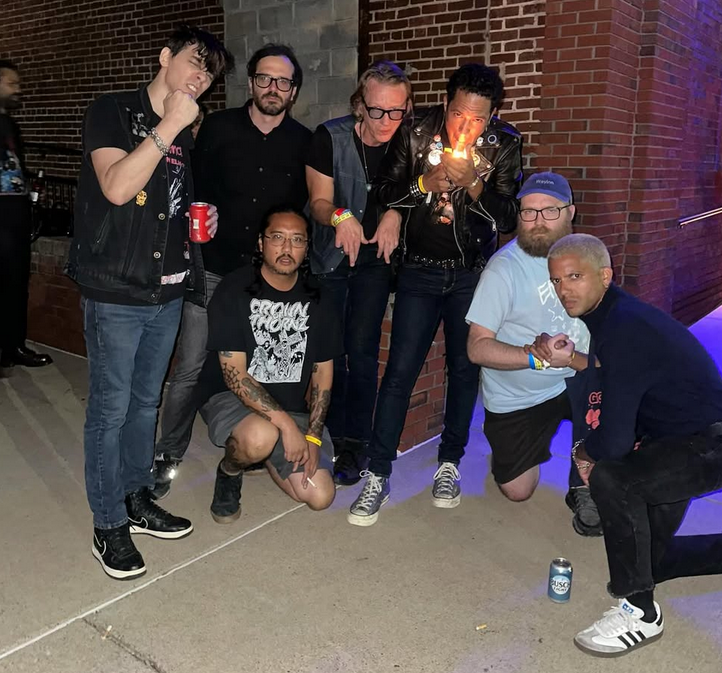Reading Please Kill Me on the middle school bus. Dumpster diving in high school for Pepsi bottle caps because Apple was doing a “free song with every bottle” Pepsi promotion around the Super Bowl. (LimeWire was too taboo for the family computer.) Collecting literal change in a styrofoam cup with Badkins during lunch to see if we could scrounge up enough cash to buy Late Registration at Borders after school. Looking up record stores in the Yellow Pages on every family road trip. Finding an ocean of classic album castoffs in a strip mall DJ equipment store, then going to my friend’s house with the pile to talk about the stuff I picked up.
Some combination of these things created a person who badly wanted to write about music. For a time, it was my career. There was a union contract and a 401k. My union job in corporate journalism meant I could put a small down payment on a house and keep up with mortgage payments. I used to say I’d retire in that job if they’d let me, but I knew what was coming. My dad was laid off from a TV production job when I was in middle school; he’d been steadily climbing the ladder in the WOWK13 newsroom for decades, became a master of his craft, and then a merger happened. Nobody retires in a journalism job.

(photo credit Benjamin Mohr)
I wanted to talk to people about music, listen to records, and write about this stuff. Talking to musicians and other music writers became the new “gushing about records with my friends.” I got a news job that took the young lives of a couple phones, which overheated under the pressure of Slack and social media notifications.
My salary rested on me becoming a breaking news quickdraw artist—to harvest the most clicks while still maintaining editorial trust across a broad readership. Being constantly on-call to popular music as a whole, it turns out, is a serious pressure cooker.
Every social network became work. Talking to music writers about records on social media became work. Reading books about music became work. The fun parts of the job—interviewing bands and writing about records—were negotiations that I’d have to weigh against my free time. I had to convince the people who hired me as a music writer that music writing might be a good use of my work time.
For 12 years, I made a run at a career as the news guy at the top of music journalism’s highest peak, and then I got laid off on a Zoom call while holding my sleeping child. The entire day-to-day scaffolding of my schedule disappeared, but the anxious hair-trigger electricity of what I’d been doing with my time across 12 years still crackled in my brain. So I started running. I launched a punk rock newsletter called see/saw and gradually built myself some new scaffolding. I freelanced a ton and landed dream assignments and achieved several professional goals outside the walls of my former workplace. I got a day job (contract work as a copywriter). I started a podcast and a radio show. I just kept trying to make stuff happen.
But more importantly, I started going to punk shows way more often. I started making new friends and throwing shows of my own. I started talking about records in the real world. Through writing about this loud and bizarre music, I became pen pals with all these sickos who are into the same kind of stuff I like.
Over time, I realized there’s no universe where I want to call music writing a career ever again. The money was cool, and I do have a child to feed, but the work itself was abusive. I was a good soldier for someone else’s cause, ready to run to my laptop on every major holiday in the event a musician was found dead on Christ’s birthday. These days, my words are an expression of the dumpster diving teenaged longhair and the bald beardo sweating it out in a punk house basement. My words are for me, and they’ve made it so I have an excuse to hang out with all these cool and funny motherfuckers who make things.

My career in music writing meant tending the feeds, reacting promptly, and waiting desperately to disengage from the internet. My post-career music writing art practice/community engagement exercise is a different beast. It’s like: Have you ever gone record shopping with someone whose taste you deeply respect? Or you got to hang out in their living room and rifle through their records? It’s one of life’s greatest joys to have somebody drop the needle on a $3 record and explain why they’re obsessed with it. It’s that space of discovery and raw enthusiasm where you keep saying the sentence “that sounds sick.” And you’re always right; that does sound sick.
That’s the vibe right now, and it’s unbeatable.
Read & hear more from Evan at See/Saw.

Nov 7, 2025 12:08:53 PM



